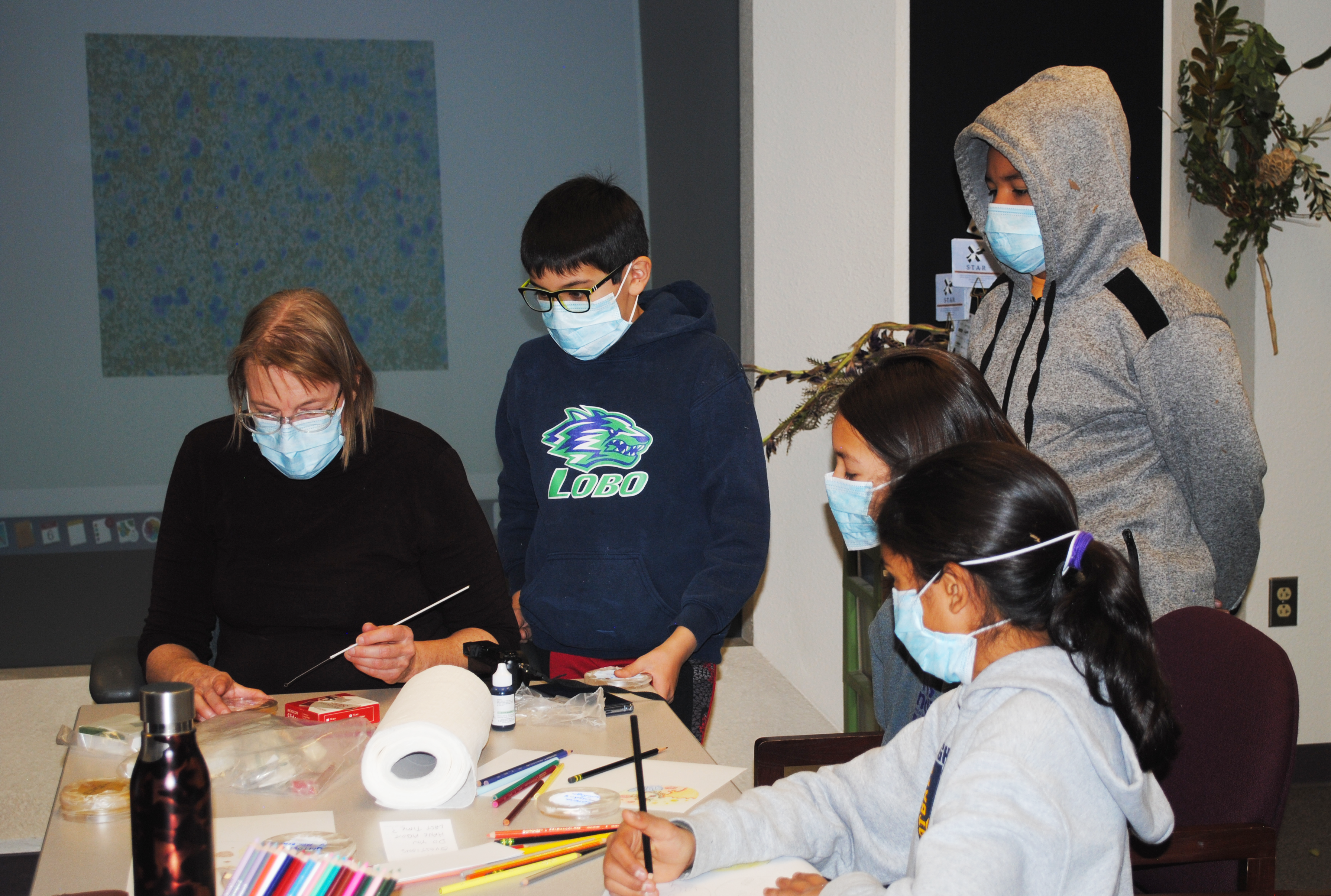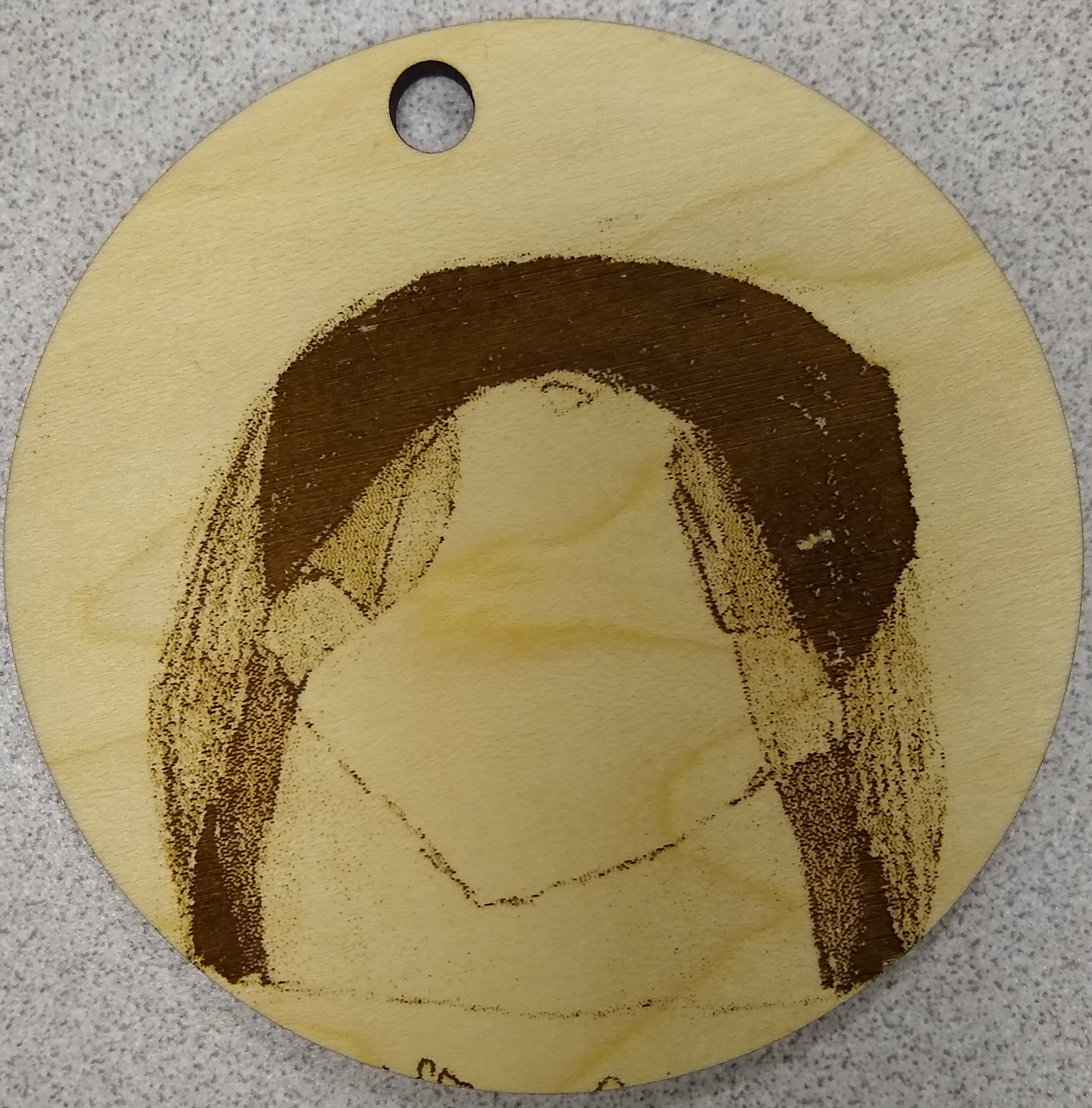CARC’s Vis Lab inspires students' STEM interest
According to a report by the New Mexico Department of Workforce Solutions, about an eighth of all jobs in New Mexico are in or related to STEM (science, technology, engineering, and math) fields. These jobs are highly lucrative and expected to be readily available to college grads in the coming years. Knowing this, educators across New Mexico are encouraging their students to explore STEM topics.

To help spark kids’ interest in STEM, Rosemary Morgan and Amy Pilling, two AmeriCorps volunteers working in the Vis Lab at the University of New Mexico Center for Advanced Research Computing, are providing a series of educational workshops to a group of students from Jefferson Middle School. These students are members of an afterschool club called NM MESA, or New Mexico Mathematics, Engineering, and Science Achievement. According to MESA’s website, “MESA students participate in a variety of enriched math, science and engineering activities including field trips, speakers, workshops, regional and state-wide academic competitions, community service and leadership development projects.” Tammy Dunham, the school’s librarian and MESA advisor, explains that MESA is a “pre-college program that’s meant to get [students] interested in fields related to math and science.”
With 138 teacher advisors located in 27 school districts, the MESA program is involved in middle- and high-school education throughout the state of New Mexico. Perhaps most importantly, the program has had great success in reaching historically underserved student populations; 50% of MESA students are female, 88% belong to minority groups, and 57% receive free or reduced-price school meals.
In CARC’s Vis Lab, the MESA group from Jefferson Middle School has been engaging in a variety of hands-on educational activities. During a November workshop, the students used cotton swabs and petri dishes to gather microbe samples from around the CARC building – stairway railings, conference tables, door handles, and other spots frequently touched by bacteria-laden fingers. The samples were then placed into the Vis Lab’s incubator for about three weeks, allowing them to bloom into full-blown microbial colonies. The temperature of the incubator, Pilling explained to the children, was set below human body temperature, encouraging only the growth of nonpathogenic organisms.
At the group’s December 6th workshop, the middle school students donned surgical masks and gathered around the Vis Lab conference table, eager to see the fruits of their labor. As soon as the incubator was opened, the air was imbued with the gaseous byproducts of bacterial growth. Despite the odor, the students were thrilled to see the unique and intricate patterns created by their samples. These patterns were the inspiration behind the kids’ next activity: bioart.
Bioart, a shortened term for “biological art,” is a broad term used to describe works of art that are created using biological materials, tools, or techniques. As Morgan describes it, “[Bioart] smashes art and biology together.” This fascinating new genre has pushed the boundaries of artistic expression to include things like audio tracks based on EEG readings, genetically modified creatures, and even recorded surgical procedures.
 The students of MESA, of course, took part in a much less controversial form of bioart. After observing their matured samples, the group created drawings based off what they saw. Then, those drawings were imported into the Vis Lab’s plot cutter and burned into round slats of wood, producing festive wooden ornaments.
The students of MESA, of course, took part in a much less controversial form of bioart. After observing their matured samples, the group created drawings based off what they saw. Then, those drawings were imported into the Vis Lab’s plot cutter and burned into round slats of wood, producing festive wooden ornaments.
With a teacher-to-student ratio of 1-to-2, the Vis Lab workshops lead by Morgan and Pilling provided Jefferson students with an immersive and individually tailored learning experience that would be difficult to achieve using public middle school resources alone. The Vis Lab would like to continue providing these workshops to the local community, particularly to students of all ages with limited access to creative resources. “We really want to do more workshops,” Morgan reports, “ The whole point of [AmeriCorps] Vista is to provide resources and education to the underprivileged and we want to help all the students we can.”
Groups or organizations interested in participating in a Vis Lab workshop should contact STEAM NM for more information.
